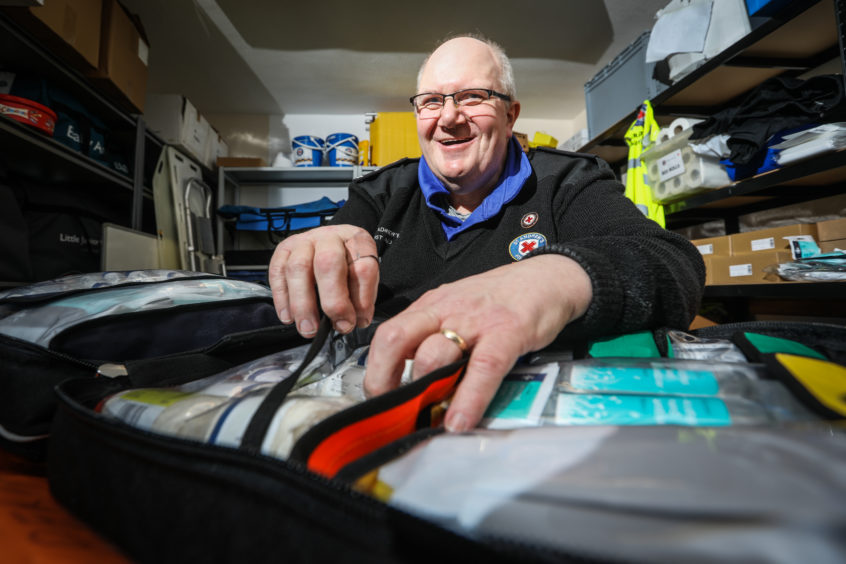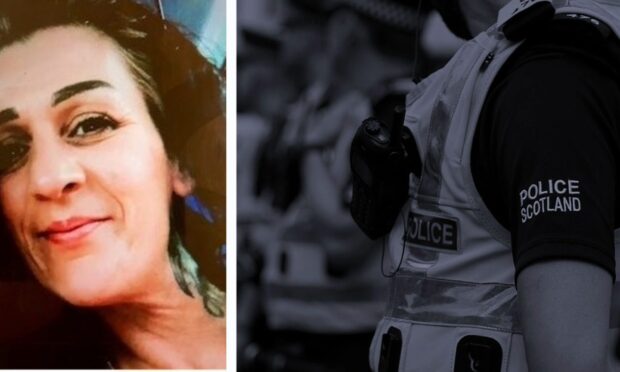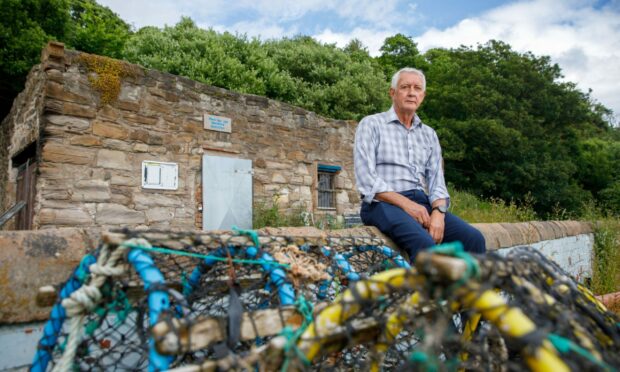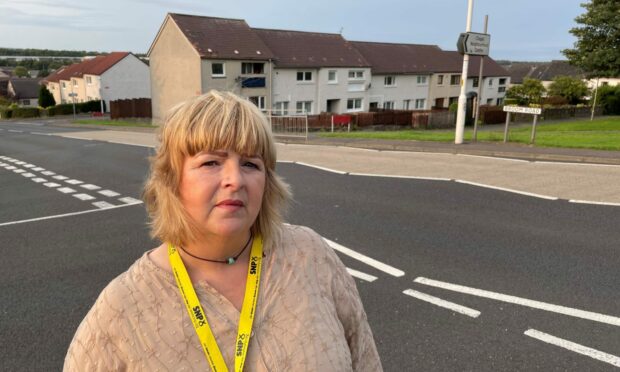A Fife first aid leader has called for lifesaving training to be rolled out in schools after more than 40 years of service with a leading first aid charity.
Stuart McEwan, from Leven, first joined St Andrew’s First as a cadet when he was 12-years-old and has led the charity in delivering the emergency skills across Fife.
Mr McEwan picked up the skills at youth groups such as cubs and scouts before joining St Andrew’s and has been trained in first aid for around 47 years.
The 55-year-old is now a team leader in the North East and Fife Company alongside his wife Andrea, who has volunteered with the charity herself for more than two decades.
The lifesaver was recognised for his outstanding contribution to St Andrew’s First Aid at a ceremony in December, where Princess Anne presented Mr McEwan with a certificate for the achievement.
His commitment to providing lifesaving first aid has seen him volunteer at many large scale events across the country, including T in the Park, where he had had to be on alert for festivalgoers who required urgent medical attention.
He said: “I thankfully have never had to perform CPR on anyone when I’ve been covering events but I have witnessed first-hand how important it is when other first aid volunteers have had to save someone’s life.
“A former colleague of mine had to do CPR at T in the Park one year after a guy had stopped breathing and thankfully he was able to save him.
“I think it’s unlikely the lad would have made it if first aiders hadn’t of been there.”
Mr McEwan said receiving the accolade for longstanding service to St Andrew’s First Aid was a “true honour”.
He was one of 33 volunteers, with a combined service of more than 1,400 years, to be recognised at the event in Glasgow.
But more work needs to be done to recruit new lifesavers.
Mr McEwan said: “I think more schools need to be teaching their pupils first aid and I hope to see it happen.
“I learned first aid young and absolutely loved it and it’s a skill that’s actually really easy once you know it.
“Kids are like sponges and they pick up things very quickly so it’s easier to teach them. They are usually very eager to learn and they are less likely to panic in a situation.
“Even if they haven’t got the capabilities to perform first aid themselves, training them in how to make emergency calls or how to act can be a life changer.”










